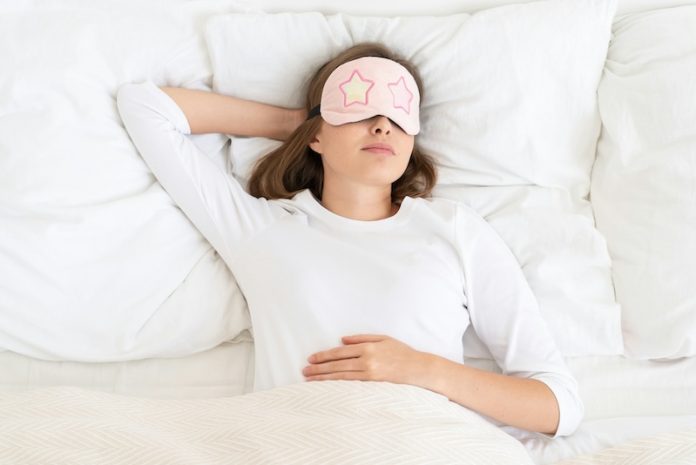
For millions of people struggling with chronic sleep problems, getting a good night’s rest can feel impossible.
Tossing and turning, waking up in the middle of the night, or not being able to fall asleep at all are common complaints.
While there are many treatments for sleep disorders, one natural solution stands out – melatonin. This tiny hormone, produced by our bodies, plays a key role in helping us fall asleep, stay asleep, and wake up feeling refreshed.
Melatonin is often called the “sleep hormone” because its main job is to regulate our sleep-wake cycle, also known as the body’s internal clock or circadian rhythm. This rhythm helps us feel awake during the day and sleepy at night.
Melatonin is naturally produced in the brain when it gets dark, signaling to the body that it’s time to rest. However, things like stress, aging, and exposure to bright screens at night can interfere with melatonin production, making it harder to sleep.
Research shows that melatonin supplements can help people with various sleep disorders. For example, studies have found that melatonin is effective for people with insomnia, a condition where falling or staying asleep is difficult.
A 2013 review of clinical trials published in PLOS One showed that melatonin supplements helped reduce the time it took for people with insomnia to fall asleep. The participants also reported better sleep quality and feeling more refreshed in the morning.
Melatonin is particularly helpful for people whose sleep patterns are disrupted by their schedules or environments.
This includes shift workers, people with jet lag, or those with Delayed Sleep Phase Syndrome (DSPS), a disorder where people naturally fall asleep much later than they want to.
For shift workers, who often sleep during the day and work at night, melatonin can help “reset” their body clock and improve their sleep during unusual hours.
Similarly, travelers crossing multiple time zones can take melatonin to adjust faster to a new schedule and overcome jet lag.
The role of melatonin in treating sleep disorders extends to older adults as well. As we age, our bodies produce less melatonin, which may explain why sleep problems become more common with age.
A 2016 study in the Journal of Neurology found that melatonin supplements improved both the quality and duration of sleep in older adults without causing grogginess the next day.
This makes melatonin a safe and effective option for older individuals who want to improve their sleep naturally.
Melatonin has also shown promise in children and teenagers with sleep disorders, especially those with conditions like autism or ADHD, where sleep problems are common.
A study published in Pediatrics found that melatonin helped children with autism fall asleep faster and sleep for longer periods. Importantly, the supplement was well-tolerated, meaning it didn’t cause serious side effects.
One of the reasons melatonin is popular is that it is considered safer than traditional sleeping pills. Unlike many prescription sleep medications, melatonin does not cause dependence or severe side effects.
Most people tolerate melatonin well, and when used correctly, it doesn’t leave you feeling groggy or “hungover” the next day. However, experts recommend taking low doses, as too much melatonin can interfere with your natural sleep cycle and cause headaches or dizziness.
Melatonin is widely available as an over-the-counter supplement in many countries, but it’s important to use it wisely. Experts suggest taking melatonin 30-60 minutes before bedtime to give it time to work.
You should also create a relaxing bedtime routine, dim the lights, and avoid screens to help your body produce its own melatonin naturally.
In summary, melatonin is a safe, natural, and effective tool for treating chronic sleep disorders. It works by helping the body reset its internal clock, making it easier to fall asleep and stay asleep.
Research supports its use for insomnia, jet lag, shift work sleep disorder, and conditions like delayed sleep phase syndrome. For older adults, children, and anyone struggling with disrupted sleep patterns, melatonin offers a gentle solution without the risks of stronger medications.
If you’re having trouble sleeping, melatonin might just be the natural helper you need to finally get a good night’s rest. Always check with your doctor to make sure it’s right for you, and enjoy the benefits of a better night’s sleep.
If you care about sleep health, please read studies about foods that help people sleep better, and Keto diet could improve cognitive function in people with sleep loss.
For more health information, please see recent studies about the natural supplements for sound sleep, and how your diet can improve sleep quality.
Copyright © 2024 Knowridge Science Report. All rights reserved.



